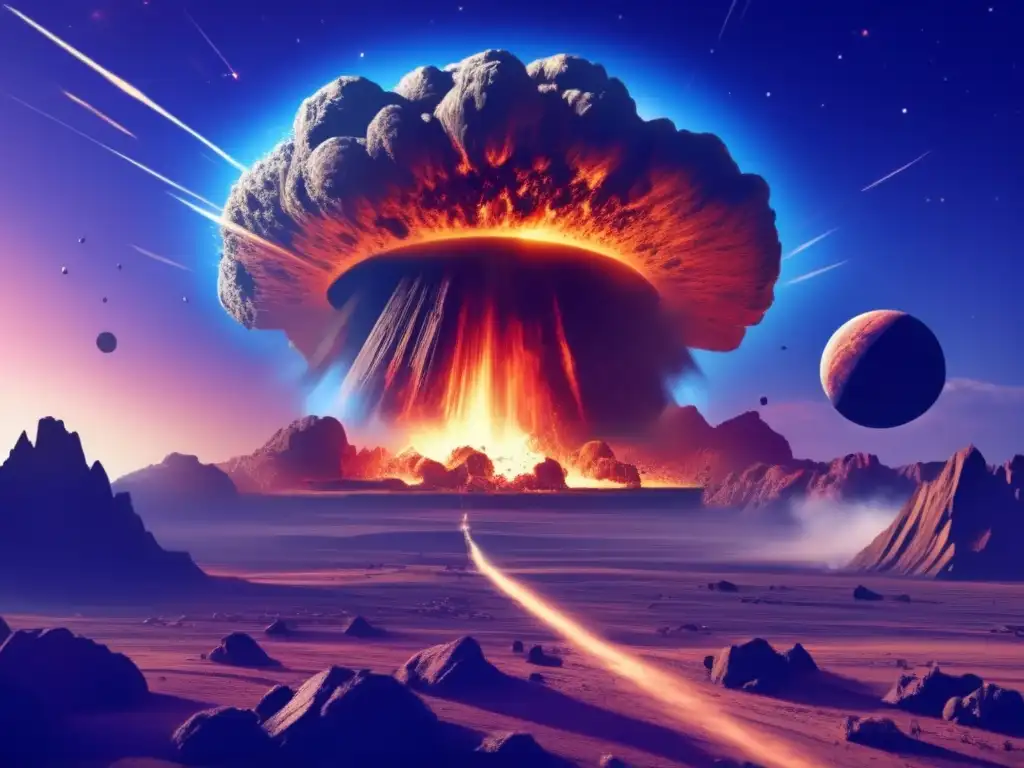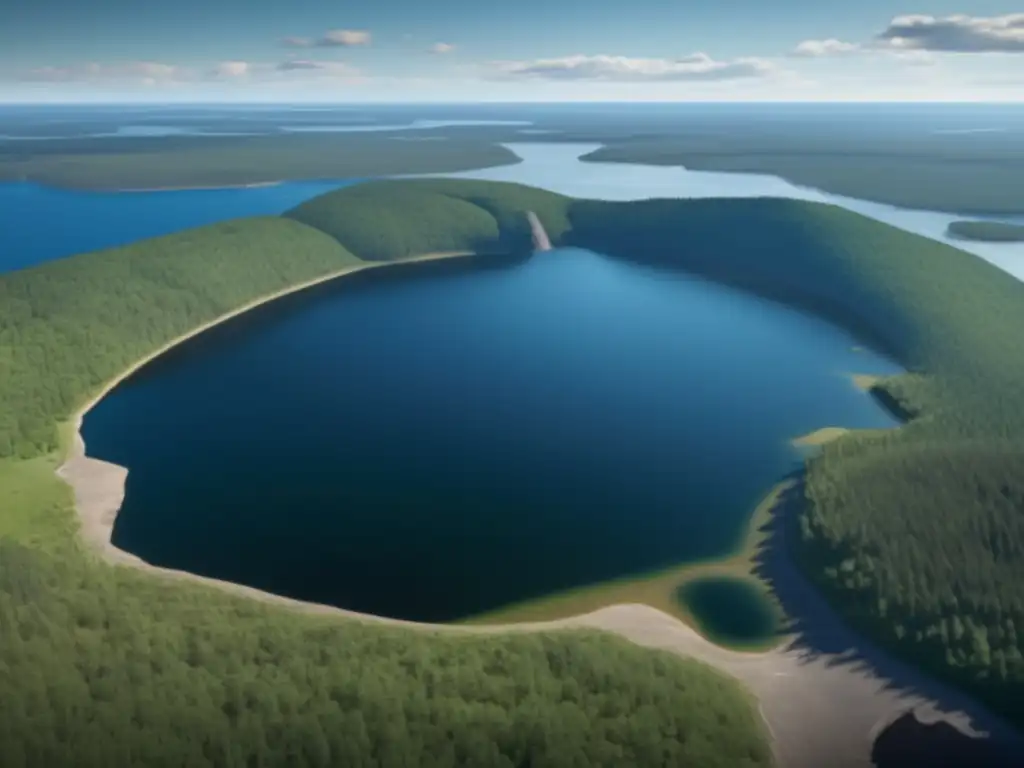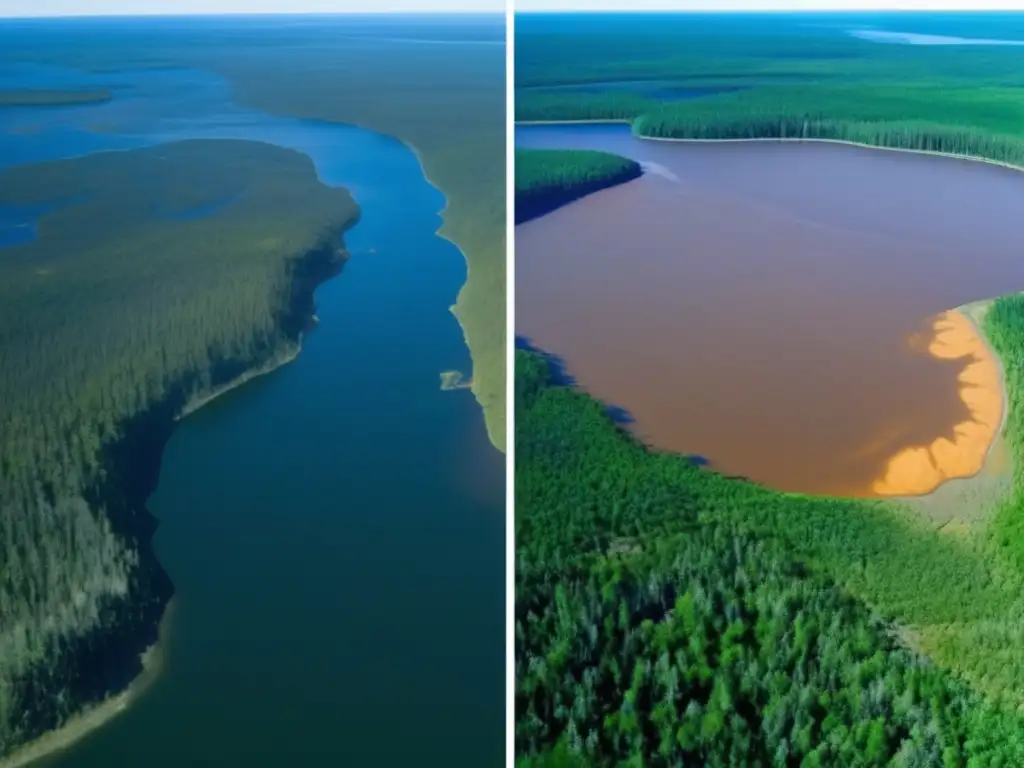The Manicouagan Reservoir: Traces Of An Ancient Asteroid Strike

Introduction
The Manicouagan Reservoir is one of the most significant landmarks on the planet, and it has a fascinating geological history. This site is located in Quebec, Canada and it was created when a massive asteroid struck the Earth's surface more than 200 million years ago. The impact of this celestial object left a mark on the landscape that is still visible today. In this article, we will explore the history and scientific significance of the Manicouagan Reservoir impact crater.
The Impact Event

The Formation of the Crater
The Manicouagan crater was formed when a 5-kilometer-wide asteroid struck the Earth. The impact was so powerful that it created a massive explosion and sent debris flying high into the atmosphere. As the debris rained down on the surface, the Earth's crust was melted and the surrounding rock was vaporized by the heat of the explosion.
The Scale of the Event
The impact at Manicouagan was one of the largest asteroid strikes in Earth's history. The energy released was estimated to be equivalent to 25 trillion tons of TNT, which is more than one million times the power of the atomic bombs dropped on Hiroshima and Nagasaki during World War II. The impact also caused earthquakes measuring around 5 on the Richter scale, and it generated a shockwave that would have traveled around the planet several times.
The Geological Consequences
The impact at Manicouagan had significant geological consequences. The force of the explosion caused the bedrock to fracture and deform. It also melted the surrounding rock, which then solidified into a layer of igneous rock that is visible today. The impact also created a ring-shaped depression that filled with water over time, forming the Manicouagan Reservoir.
The Scientific Significance

Studying Impact Craters
Impact craters like Manicouagan provide valuable insights into the history of our planet and the processes that have shaped it over time. These craters can tell us about the size and composition of the asteroids that have struck the Earth, as well as the effects of these impacts on the environment. Studying impact craters also helps us understand how similar events could impact our planet in the future.
The Manicouagan Reservoir as a Research Site
The Manicouagan Reservoir is an important research site for scientists studying impact craters. The crater's size and age make it a unique location for studying the long-term effects of these events on Earth's ecosystems. Researchers have collected samples from the site to analyze the composition of the asteroid that caused the impact, as well as the effects of the impact on the surrounding environment.
The Reservoir's Cultural Significance
The Manicouagan Reservoir also has cultural significance for the local indigenous communities who live in the area. The crater and its surrounding landscape are considered sacred sites, and they are an important part of the community's cultural heritage.
Frequently Asked Questions

-
What caused the Manicouagan Reservoir to form?
The Manicouagan Reservoir was formed when a massive asteroid struck the Earth more than 200 million years ago.
-
How was the Manicouagan Reservoir impact crater formed?
The impact at Manicouagan caused the bedrock to fracture and deform. It also melted the surrounding rock, which then solidified into a layer of igneous rock that is visible today. The impact also created a ring-shaped depression that filled with water over time, forming the Manicouagan Reservoir.
-
What is the scientific significance of the Manicouagan Reservoir?
The Manicouagan Reservoir provides valuable insights into the history of our planet and the processes that have shaped it over time. Studying the impact crater can help us understand the size and composition of the asteroids that have struck the Earth, as well as the effects of these impacts on the environment.
-
What is the cultural significance of the Manicouagan Reservoir?
The Manicouagan Reservoir is considered a sacred site by the local indigenous communities who live in the area. It is an important part of their cultural heritage.
-
What research has been done at the Manicouagan Reservoir?
Researchers have collected samples from the site to analyze the composition of the asteroid that caused the impact, as well as the effects of the impact on the surrounding environment. Studies have also been conducted on the long-term effects of impact events on Earth's ecosystems.
Conclusion
The Manicouagan Reservoir is a fascinating example of the power of asteroid impacts. The geological and scientific significance of this site makes it an important research location for scientists studying impact craters. The site also has cultural significance for the local indigenous communities who live in the area. Studying impact craters like Manicouagan can help us understand the history of our planet and the impact of these celestial objects on the environment.
Thank you for taking the time to learn more about this incredible geological landmark. We encourage you to share your thoughts and questions in the comments section below, and to explore more of the asteroid-related content on www.asteroidrealm.com.
Additional Resources

For more information on impact craters and asteroids, check out these resources:
- NASA World Map of Impact Craters
- ScienceDirect: Impact Cratering
- American Museum of Natural History: Impact Craters
 Fractured Earth: Asteroid Impacts And Their Geological Imprint
Fractured Earth: Asteroid Impacts And Their Geological Imprint The KT Boundary: A Geological Marker Of Catastrophe
The KT Boundary: A Geological Marker Of Catastrophe Asteroid Impact Modeling: Predicting The Unpredictable
Asteroid Impact Modeling: Predicting The UnpredictableIf you want to discover more articles similar to The Manicouagan Reservoir: Traces Of An Ancient Asteroid Strike, you can visit the Asteroid Impacts category.
Leave a Reply

Articulos relacionados: